
The United States Marshals Service (USMS) is a federal law enforcement agency in the United States. The Marshals Service serves as the enforcement and security arm of the U.S. federal judiciary, although it is an agency of the U.S. Department of Justice and operates under the direction of the U.S. Attorney General. It is the oldest U.S. federal law enforcement agency, created by the Judiciary Act of 1789 during the presidency of George Washington as the "Office of the United States Marshal". The USMS as it stands today was established in 1969 to provide guidance and assistance to U.S. Marshals throughout the federal judicial districts.
Marshal is a term used in several official titles in various branches of society. As marshals became trusted members of the courts of Medieval Europe, the title grew in reputation. During the last few centuries, it has been used for elevated offices, such as in military rank and civilian law enforcement.

United States Customs and Border Protection (CBP) is the largest federal law enforcement agency of the United States Department of Homeland Security. It is the country's primary border control organization, charged with regulating and facilitating international trade, collecting import duties, as well as enforcing U.S. regulations, including trade, customs and immigration. CBP is one of the largest law enforcement agencies in the United States. It has a workforce of more than 45,600 federal agents and officers. It is headquartered in Washington, D.C.

The Supreme Court of Missouri is the highest court in the state of Missouri. It was established in 1820 and is located at 207 West High Street in Jefferson City, Missouri. Missouri voters have approved changes in the state's constitution to give the Supreme Court exclusive jurisdiction – the sole legal power to hear – over five types of cases on appeal. Pursuant to Article V, Section 3 of the Missouri Constitution, these cases involve:
A law enforcement officer (LEO), or peace officer in North American English, is a public-sector or private-sector employee whose duties primarily involve the enforcement of laws, protecting life & property, keeping the peace, and other public safety related duties. Law enforcement officers are designated certain powers & authority by law to allow them to carry out their responsibilities.

The Alaska State Troopers, officially the Division of Alaska State Troopers (AST), is the state police agency of the U.S. state of Alaska. It is a division of the Alaska Department of Public Safety (DPS). The AST is a full-service law enforcement agency that handles both traffic and criminal law enforcement. The AST is also involved in apprehending fugitives as part of the Alaska Fugitive Task Force, an inter-agency collaborative of Alaska police departments that cooperates with police agencies throughout the United States and less commonly with Interpol in apprehending wanted men and women. Unlike many lower 48 states, the AST also serves as Alaska’s primary environmental law enforcement agency; troopers assigned to the AST’s Division of Alaska Wildlife Troopers are known as "Alaska Wildlife Troopers" and primarily serve as game wardens, although they retain the same powers as other Alaskan state troopers.
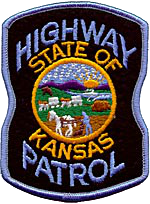
The Kansas Highway Patrol (KHP) is the highway patrol agency for the U.S. state of Kansas. While the patrol's primary focus is maintaining the safety of State, Federal and Interstate highways, it also is charged with providing support for county agencies when tactical, aerial or other specialized services are needed. The Kansas Highway Patrol has statewide jurisdiction, and frequently assists other agencies with emergency calls for service ranging from accidents to fights in progress.

The Jacksonville Sheriff's Office (JSO) is a joint city-county law enforcement agency, which has primary responsibility for law enforcement, investigation, and corrections within the consolidated City of Jacksonville and Duval County, Florida, United States. Duval County includes the incorporated cities of Jacksonville, Atlantic Beach, Baldwin, Jacksonville Beach, and Neptune Beach; the beach cities have their own police departments as well.
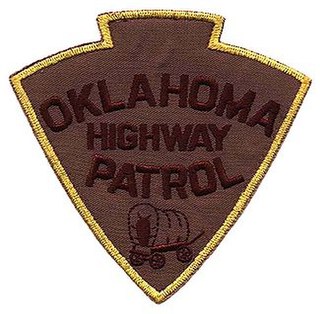
The Oklahoma Highway Patrol (OHP) is a major state law enforcement agency of the government of Oklahoma. A division of the Oklahoma Department of Public Safety, the OHP has traffic enforcement jurisdiction throughout the state. OHP was legislatively created on July 1, 1937, due to the growing problem of motor vehicle collisions, the expansion of highway systems, and the increase in criminal activities.
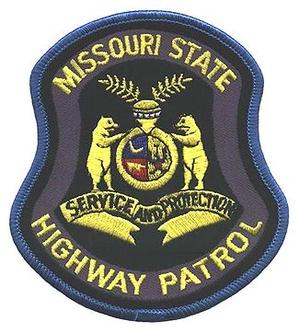
The Missouri State Highway Patrol(MSHP) is the highway patrol agency for Missouri and has jurisdiction all across the state. It is a division of the Missouri Department of Public Safety. Colonel Eric T. Olson has been serving as the 24th superintendent since March 15, 2019.

The New Mexico State Police (NMSP) is the law enforcement agency of the U.S. state of New Mexico. Administered by the New Mexico Department of Public Safety, it has jurisdiction anywhere in the state, often working in tandem with local and federal law enforcement. Founded in 1905, NMSP's official mission is to protect the lives, property and constitutional rights of the people of New Mexico.
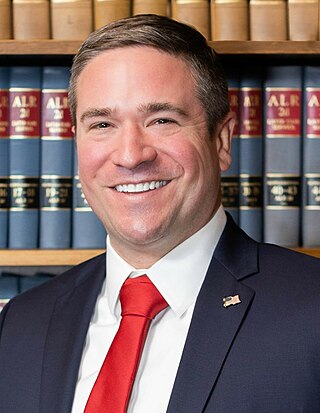
The Office of the Missouri Attorney General was created in 1806 when Missouri was part of the Louisiana Territory. Missouri's first Constitution in 1820 provided for an appointed attorney general, but since the 1865 Constitution, the Attorney General has been elected. As of January 2023, there have been 44 attorneys general in Missouri.

In the United States, a sheriff is the chief of law enforcement of a county. Sheriffs are usually either elected by the populace or appointed by an elected body.
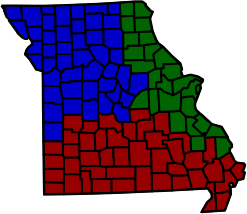
The Missouri Court of Appeals is the intermediate appellate court for the state of Missouri. The court handles most of the appeals from the Missouri Circuit Courts. The court is divided into three geographic districts: Eastern, Western, and Southern. For example, appeals taken from trials in St. Louis County will go to the Eastern District, and appeals taken from trials in Jackson County will go to the Western District.
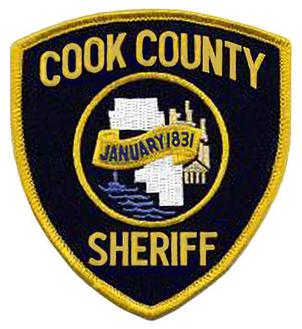
The Cook County Sheriff's Office (CCSO) is the principal law enforcement agency that serves Cook County, Illinois. It is the second largest sheriff's department in the United States, with over 6,900 members when at full operational strength. It is headed by the Cook County Sheriff, currently Thomas Dart.
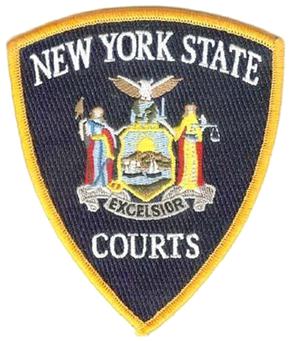
New York State Court Officers are responsible for the safety and security and maintaining order within New York State Court facilities statewide.

In the United States, the state police is a police body unique to each U.S. state, having statewide authority to conduct law enforcement activities and criminal investigations. In general, state police officers or highway patrol officers, known as state troopers, perform functions that do not fall within the jurisdiction of the county sheriff, such as enforcing traffic laws on state highways and interstate expressways, overseeing the security of the state capitol complex, protecting the governor, training new officers for local police forces too small to operate an academy and providing technological and scientific services. They support local police and help to coordinate multi-jurisdictional task force activity in serious or complicated cases in those states that grant full police powers statewide.

The Baltimore City Sheriff's Office is the law enforcement arm of the Circuit Court of Maryland, serving Baltimore, Maryland. The office is headquartered in Courthouse West of the Baltimore City Circuit Courthouses, which also serves as the sites for Baltimore City branch of the Circuit Court of Maryland.
The Hartford County Sheriff's Department was a 300-person law enforcement agency that served the twenty-nine towns of Hartford County, Connecticut in North Central Connecticut. Hartford County was constituted in 1666. The Code of 1650 of the General Court of Connecticut allowed "the marshall" to collect fees for the service of executions and attachments and fines for breaches of law. In 1698, marshals became "sheriffs." In 1722, sheriffs were given the duty of conserving the peace and could command people to help them. Two years later, each sheriff became responsible for the jail in his county, with the right to appoint people as "keepers." In 1766, limits were placed on the number of deputies a high sheriff could appoint, although on special occasions other people could be used as well.
In the United States, there is no consistent use of the office of constable throughout the states; use may vary within a state. A constable may be an official responsible for service of process: such as summonses and subpoenas for people to appear in court in criminal and/or civil matters. They can also be fully empowered law enforcement officers. Constables may have additional specialized duties unique to the office. In some states the constable is an elected or appointed position at the state or local level of local government. Their jurisdiction can vary from statewide to county/parish and local township boundaries based on the state's laws.

















